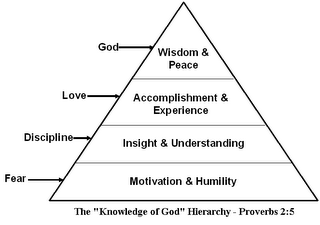Let Us be the Wise Man
The Bible's Proverbs and Psalms is all to clear that there are evil men among us that are lurking about waiting to entice us into thinking and doing what the standards of the Bible would consider morally questionable thoughts and actions.
It also seems evident that to be a Wise Man is to see the evil and avoid it
Proverbs 4:14Enter not into the path of the wicked, and go not in the way of evil men. 15Avoid it, pass not by it, turn from it, and pass away., nor to marvel at it Ecclesiastes5:8 If thou seest the oppression of the poor, and violent perverting of judgment and justice in a province, marvel not at the matter: for he that is higher than the highest regardeth; and there be higher than they.
I believe that the determining factor as to whether you are a wise man would be seen within the decisions that you make in our daily life experiences.
Thus the Best Questions ("In light of my past experience, current circumstances and future hopes and dreams, what is the wsie thing for me to DO!) ASKED BEFORE the decision would afford the person the opportunity to make the 'wise decision'. This first golden nugget of wisdom "think before you act" enables the opportunity for wise decisions to be made. If we forgo this necessary thought process, then we invariably will commit a foolish act. What we predicate our wise decision making process on, our ethics and morals, is a can of worms that I will not open at this point, as invariably I believe it will open itself up within the natural course of continuing this blog.
Important to note is the separation of the heart, or emotions, from this process. Proverbs 28:26He that trusteth in his own heart is a fool: but whoso walketh wisely, he shall be delivered.
The wise man is not quick to decide, but rather slow to speak, slow to wrath, and quick to listen and understand before commiting to a decision. He is also not afraid to admit he does not know and will seek out those that do know; thus he is not prideful, but humble.
It seems important to note, that within the context of this understanding is the knowledge that time is a commodity and as precious as any other commodity within our world. The wise man is all to aware that there are many parts of our life that require daily 'time' deposits in order to be fruitful and see growth within ourselves, our family, our community and our nation. Many of these aspects of life, such as our family, can not be neglected or it will deteriorate, and we will not be able to make amends by trying to digest one family gathering of 10 hours to make up for the 10, 1 hour family dinners. We can not work out for 10 hours physically to make up for the 10, 1 hour workouts we have missed.
In addition, within the framework of the world we live in, we must develop our standards that we will not compromise on! We must know where we stand so as to not fall for anything. We must write these down and say them to our family/friends so that we can consider ourselves accountable for our actions. It seems all to apparent that we can not use the standards of our society or we will be unwise...for how easy it is to see that as it says in I Timothy 6:10
10For the love of money is the root of all evil
Not surprising that sex, drugs and violence are the number one selling items in the world. Therefore we must create our own standards for what we consider ethical and moral and then DO what we say. Let us not be a hearer of the word, but a doer!


